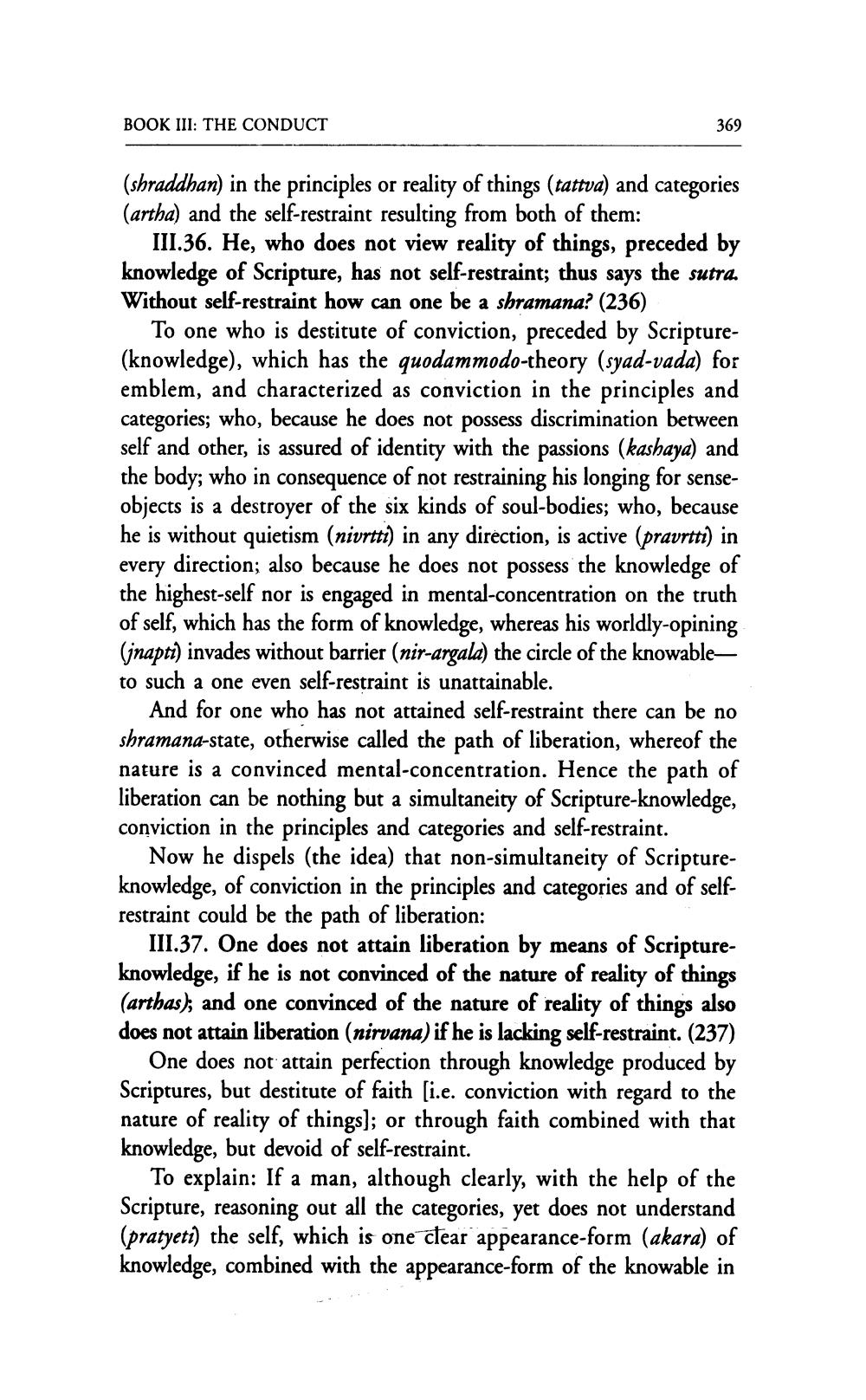________________
BOOK III: THE CONDUCT
369
(shraddhan) in the principles or reality of things (tattva) and categories (artha) and the self-restraint resulting from both of them:
III.36. He, who does not view reality of things, preceded by knowledge of Scripture, has not self-restraint; thus says the sutra. Without self-restraint how can one be a shramana? (236)
To one who is destitute of conviction, preceded by Scripture(knowledge), which has the quodammodo-theory (syad-vada) for emblem, and characterized as conviction in the principles and categories; who, because he does not possess discrimination between self and other, is assured of identity with the passions (kashaya) and the body; who in consequence of not restraining his longing for senseobjects is a destroyer of the six kinds of soul-bodies; who, because he is without quietism (nivrtti) in any direction, is active (pravrtti) in every direction; also because he does not possess the knowledge of the highest-self nor is engaged in mental-concentration on the truth of self, which has the form of knowledge, whereas his worldly-opining (inapti) invades without barrier (nir-argala) the circle of the knowableto such a one even self-restraint is unattainable.
And for one who has not attained self-restraint there can be no shramana-state, otherwise called the path of liberation, whereof the nature is a convinced mental-concentration. Hence the path of liberation can be nothing but a simultaneity of Scripture-knowledge, conviction in the principles and categories and self-restraint.
Now he dispels (the idea) that non-simultaneity of Scriptureknowledge, of conviction in the principles and categories and of selfrestraint could be the path of liberation:
III.37. One does not attain liberation by means of Scriptureknowledge, if he is not convinced of the nature of reality of things (arthas); and one convinced of the nature of reality of things also does not attain liberation (nirvana) if he is lacking self-restraint. (237)
One does not attain perfection through knowledge produced by Scriptures, but destitute of faith (i.e. conviction with regard to the nature of reality of things]; or through faith combined with that knowledge, but devoid of self-restraint.
To explain: If a man, although clearly, with the help of the Scripture, reasoning out all the categories, yet does not understand (pratyeti) the self, which is one clear appearance-form (akara) of knowledge, combined with the appearance-form of the knowable in




